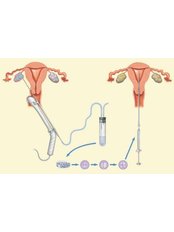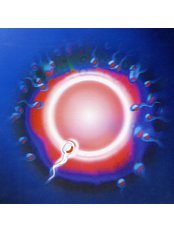IVF - In Vitro Fertilisation


In Vitro Fertilisation (IVF) is a process by which egg cells are fertilised by sperm outside the womb, in vitro. IVF is a major treatment in infertility when other methods of assisted reproductive technology have failed. The process involves hormonally controlling the ovulatory process, removing ova (eggs) from the woman's ovaries and letting sperm fertilise them in a fluid medium. The fertilised egg (zygote) is then transferred to the patient's uterus with the intent to establish a successful .
IVF may be used to overcome female infertility in the woman due to problems of the fallopian tube, making fertilisation in vivo difficult. It may also assist in male infertility, where there is defect sperm quality, and in such cases intracytoplasmic sperm injection (ICSI) may be used, where a sperm cell is injected directly into the egg cell. This is used when sperm have difficulty penetrating the egg, and in these cases the partner's or a donor's sperm may be used. ICSI is also used when sperm numbers are very low. ICSI results in success rates equal to those of IVF fertilisation.